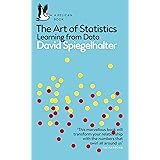Two-Sample T-Test on a TI-84 Calculator
Two-Sample T-Test on a TI-84 Calculator, If you’re involved in statistical analysis, understanding how to conduct a two-sample t-test is essential, especially when comparing the means of two different populations.
Two-Sample T-Test on a TI-84 Calculator
This tutorial will walk you through the process of executing a two-sample t-test using a TI-84 calculator.
What is a Two-Sample T-Test?
A two-sample t-test is a statistical method used to determine if there is a significant difference between the means of two independent groups.
This test is particularly useful in research scenarios where you want to compare outcomes under different conditions.
Example Scenario
Let’s consider a practical example. Researchers are evaluating whether a new fuel treatment affects the average miles per gallon (mpg) of a specific car model.
They conduct an experiment consisting of two groups: one group of 12 cars receives the new fuel treatment, while the other group of 12 cars does not.
- Control Group (No Treatment)
- Mean mpg: 21 mpg
- Standard Deviation: 2.73 mpg
- Treatment Group (With New Fuel)
- Mean mpg: 22.75 mpg
- Standard Deviation: 3.25 mpg
Now, let’s perform a two-sample t-test using this data.
Step-by-Step Instructions for Performing a Two-Sample T-Test on a TI-84
Step 1: Access the Two-Sample T-Test
- Turn on your TI-84 calculator.
- Press the
STATbutton. - Navigate to the
TESTSmenu by scrolling right. - Find and select
2-SampTTestfrom the list.

Step 2: Input the Data
The calculator will prompt you to input the necessary statistics. Complete the fields as follows:
- Inpt: Select
Statsto indicate you are using summary statistics. - x1: Enter the mean mpg for the first group (control group). Type
21and pressENTER. - Sx1: Input the standard deviation for the first group. Type
2.73and pressENTER. - n1: Enter the sample size for the first group. Type
12and pressENTER. - x2: Input the mean mpg for the second group (treatment group). Type
22.75and pressENTER. - Sx2: Enter the standard deviation for the second group. Type
3.25and pressENTER. - n2: Input the sample size for the second group. Type
12and pressENTER. - μ1: Choose the alternative hypothesis. For a two-tailed test, highlight
≠μ2and pressENTER(indicating μ1 is not equal to μ2). - Pooled: Select
noto indicate you do not wish to pool the variances. - Finally, highlight
Calculateand pressENTER.
Step 3: Interpret the Results
The TI-84 will display the results of the two-sample t-test. Here is how to interpret the output:
- Alternative Hypothesis (μ1 ≠ μ2): The means of the two groups are not equal.
- t-test Statistic (t): -1.4283
- p-value: 0.1677
- Degrees of Freedom (df): 21.36
- Mean of Group 1 (x1): 21
- Mean of Group 2 (x2): 22.75
- Standard Deviation of Group 1 (Sx1): 2.73
- Standard Deviation of Group 2 (Sx2): 3.25
- Sample Size of Group 1 (n1): 12
- Sample Size of Group 2 (n2): 12
Conclusion
To conclude, since the p-value (0.1677) is greater than the significance level of 0.05, we fail to reject the null hypothesis.
This indicates that there is not enough evidence to suggest a significant difference in mean mpg between the group receiving the new fuel treatment and the control group.
By following these steps, you can effectively perform a two-sample t-test on your TI-84 calculator and interpret the results in line with your research goals.
This method is invaluable for researchers conducting experiments across a wide range of fields.
Final Thoughts
Understanding how to perform a two-sample t-test can greatly enhance your analytical skills.
Ensure you apply these steps whenever you’re comparing means in your statistical studies, and you’ll be well on your way to gaining valuable insights from your data.



